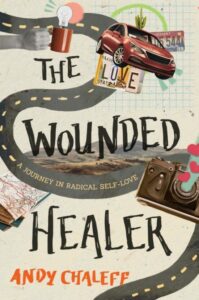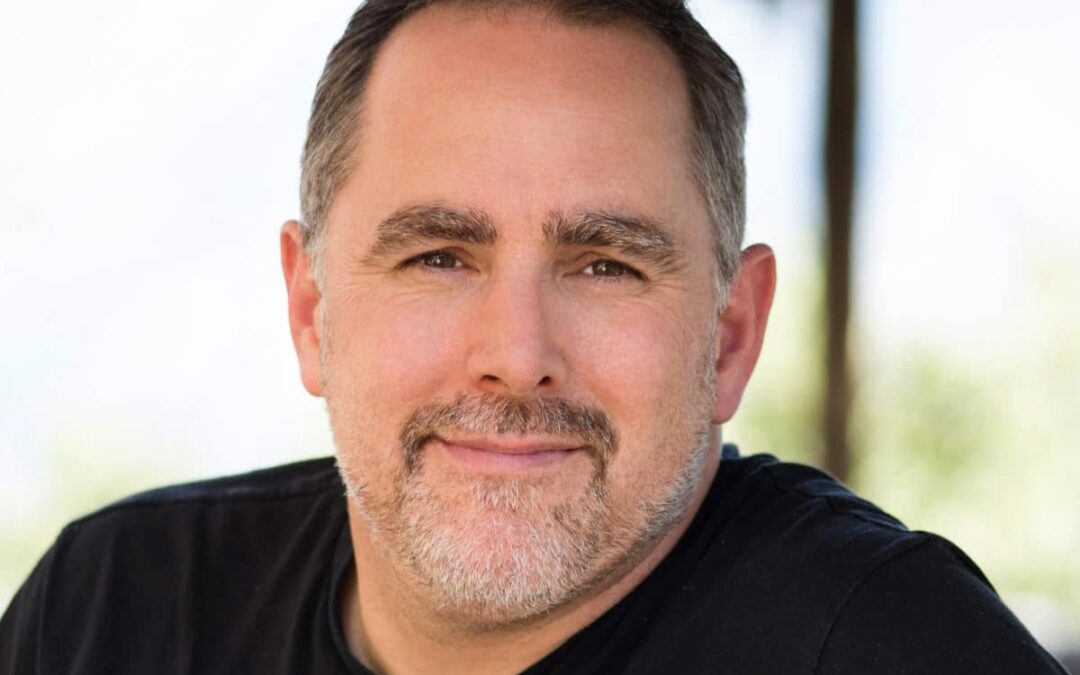 Andy Chaleff (1970-Present) is an American author born in Burbank, California. In 1990, Chaleff left the U.S. to escape the pain of his mother’s death, who was killed by a drunk driver when he was 18-years-old. In 2018 Chaleff came out with his first book, “The Last Letter,” which won several awards and was noted by Kirkus Reviews: “It’s rare that a book succeeds at relating such an intimate, personal story while also clearly discussing psychological topics, such as projection, self-destruction, addiction, self-acceptance, and vulnerability.” In his book, he chronicles his journey of healing after his mother’s death and invites readers to write a “last letter” to someone special in their lives. The book gets its name from a letter that Chaleff wrote his mother that she received hours before her death. The book and his subsequent 3-month tour of the U.S. was covered widely in the news and media. In 2020, Chaleff released “The Wounded Healer,” which is the story of his 3-month journey through the U.S. with a specific focus on uncovering radical self love. In this book he asks people to name the thing that is hardest to say and follow it with the stem “…and it’s fu*king great!” He pays special attention to archetypes that are easy to relate with, from the perfectionist to the victimised. Chaleff is currently the Director of the Amsterdam’s Welvaren training center and mentor and advisor to several non-profits, paying special attention to education and parenting. To learn more, visit www.andychaleff.com.
Andy Chaleff (1970-Present) is an American author born in Burbank, California. In 1990, Chaleff left the U.S. to escape the pain of his mother’s death, who was killed by a drunk driver when he was 18-years-old. In 2018 Chaleff came out with his first book, “The Last Letter,” which won several awards and was noted by Kirkus Reviews: “It’s rare that a book succeeds at relating such an intimate, personal story while also clearly discussing psychological topics, such as projection, self-destruction, addiction, self-acceptance, and vulnerability.” In his book, he chronicles his journey of healing after his mother’s death and invites readers to write a “last letter” to someone special in their lives. The book gets its name from a letter that Chaleff wrote his mother that she received hours before her death. The book and his subsequent 3-month tour of the U.S. was covered widely in the news and media. In 2020, Chaleff released “The Wounded Healer,” which is the story of his 3-month journey through the U.S. with a specific focus on uncovering radical self love. In this book he asks people to name the thing that is hardest to say and follow it with the stem “…and it’s fu*king great!” He pays special attention to archetypes that are easy to relate with, from the perfectionist to the victimised. Chaleff is currently the Director of the Amsterdam’s Welvaren training center and mentor and advisor to several non-profits, paying special attention to education and parenting. To learn more, visit www.andychaleff.com.
 Do you accept and love yourself-fully and completely, with no judgment, holding nothing back? What blocks you from doing so? How would you experience life differently if you were able to do so?
Do you accept and love yourself-fully and completely, with no judgment, holding nothing back? What blocks you from doing so? How would you experience life differently if you were able to do so?
The Wounded Healer is one man’s journey to answer these questions. After his first book, The Last Letter, Andy Chaleff took a leap of faith. He dropped everything and drove alone for three months coast-to-coast across the US. In dozens of sessions, he asked people the same question: If you knew someone in your life would die tomorrow and you had one last chance to express feelings to him or her, what would you say?
You are now Andy’s travel companion. See your own struggle with self-acceptance reflected in his as he confronts his deepest fears, demons, and critical inner voice. As he breaks through inner blocks and learns to love himself, find your pathway to the same acceptance. With humility and vulnerability, Andy invites you to embark on your own journey to find liberation through the power of radical self-love.
1. What was the process like to write The Wounded Healer?
Writing The Wounded Healer was a wonderful experiment. I kept an audio journal during my 3-month journey across the United States, paying close attention to the interactions I was having with people along the way. After the trip, I got the audio recording transposed and when I read the stories, I was hooked. Although I was uncertain what the book would become, I followed my instinct and was guided to focus on the archetypes of people challenged to find self-love.
2. What was the inspiration behind this book?
I’ve spent most of my life running away from my mother’s death. I was 18 years old when she was hit and killed by a drunk driver. I used the 30-year anniversary of her death to return to America and make peace with my past. On my trip, I used a special self-help tool and recorded deep and intimate talks surrounding self-love. I had many of my own challenges with self-love, which brought a beautiful opportunity to heal myself alongside those whose stories I share.
3. If you could travel back in time to your child self, what advice would you offer him and why?
I always felt alone and unseen as a child. I would often blame people for not seeing me, while simultaneously hiding my emotions. If I were to travel back in time, I would hold myself for hours and say over and over again, “I see you. You are not alone.”
4. If readers take one thing away from your book, what do you hope that is?
I love it when people get to experience their emotions anew. Sometimes we forget that we are not our emotions, rather there are emotions that are occurring inside of us. The self-love tool that I use slavishly throughout the book gives people the opportunity to take troubling emotions, judgments, and regrets and turn them into a laugh and a tear. The thought that there will be people who heal through reading this book gives me great joy.
5. What do you hope your book has instilled in readers moving forward with their lives?
There is always a way to make peace. No matter how hard or challenging the struggle might be, there is a way to give yourself comfort in a troubling thought. And it’s not through avoidance or trying to turn it into a positive thought. It’s though radical self-love.
6. As a writer, where do you see yourself in five years?
I am an intuitive writer. Every time I try to plan to write, it gets delayed. In five years I hope that I am looking up at the sky and an idea so large hits me square in the face and I’m compelled to write it down.
7. What is the process of self-love like for you?
On any given day I have 100 thoughts that take me away from enjoying the moment I’m in. “You’re too fat.” Or, “ You need to do more.” Or any number of old statements that are rumbling around from the past. I take each statement and embrace it relentlessly. For instance, “I’m fat and it’s fu*king great.” Or “I am lazy and going nowhere in my life and it’s fu*king great.” I celebrate everything in my life without shame or guilt. In doing so, thoughts do not control me, because I am not resisting them.
8. What is one wellness task you uphold?
I walk everyday for at least two hours. It is how I clear my head. If I don’t walk, everything takes more time in the end and I’m less productive.
9. I ask a lot of authors this question, and I borrow it from my favorite podcast, Work in Progress, hosted by Sophia Bush. What is one thing you consider a work in progress in your life right now?
When COVID hit, I began a podcast called “A Wonderful Chaos.” I decided to record one live show each day and I am now well over 200 shows. It’s a work in progress, because I take on the most challenging subjects I can find to demonstrate how we can all hold space for one another, even in the darkest of struggles. Each show teaches me something new about myself.



